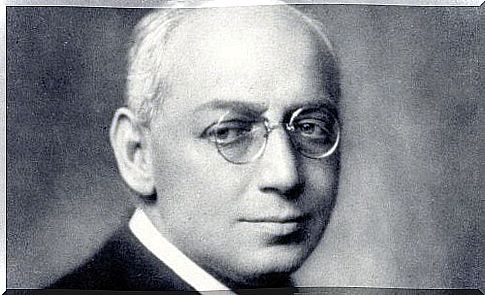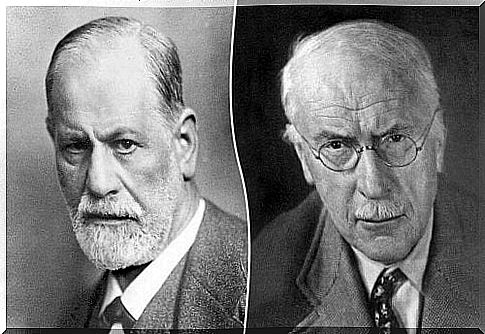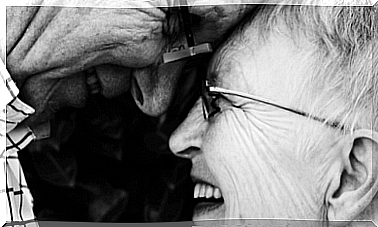Sándor Ferenczi, The Father Of Psychoanalysis

Sándor Ferenczi is known to the general public as the “enfant terrible” of psychoanalysis. This man of science was born on July 7, 1873 in Miskolc, Hungary. His original name was Alexander Frankel. His father, however, took the family name Ferenczi in 1880 and the boy was always mentioned in the diminutive of his real name, namely “Sándor”.
Ferenczi had 11 brothers and lost his father prematurely. His mother took over responsibility and ran a bookstore to keep the family afloat. It is said that Ferenczi obtained a significant part of his doctoral thesis from this unique family heritage. Freud, who would later become his teacher, spoke of “Ferenczi’s brother complex”.
“You definitely get the impression that being abandoned leads to a split in personality.”
Sándor Ferenczi
As Ferenczi noted, he had a loveless childhood. His mother was very strict and expressing affection was almost forbidden in the family. At the same time, the bookstore allowed him to start reading at a young age, and he became a poet at an early age. As a young man he moved to Vienna and attended the local university to study medicine.
Ferenczi and his encounter with psychoanalysis
Sándor Ferenczi received his medical degree at the age of 21. He specialized in neurology and psychiatry. Between 1899 and 1907 he published a large number of articles in a Hungarian journal specializing in medicine, The Budapest Writings . Here he also began to speak publicly about psychoanalysis.

Ferenczi was impressed with Carl Gustav Jung’s work and ideas. They met and Jung managed to get Ferenczi and Sigmund Freud to meet because he thought they would each benefit from each other’s ideas. That was the beginning of an intimate friendship between Ferenczi and Freud. From their biographies it can be seen that they exchanged many letters.
Ferenczi’s passionate dramas
Ferenczi led a stormy and contradicting love life. Many are sure that his life was full of psychoanalytic concepts such as the Oedipus complex and the compulsion to repeat. At the age of 31 he fell in love with Gizella, a married woman who was eight years older than him. She wanted to divorce her husband, but he refused to accept the decision. So their relationship stayed in the balance.
Elma, Gizella’s daughter, felt deeply depressed and her mother advised her to visit Ferenczi. She went to a consultation, but the scientist soon sensed that he could not maintain his analytical impartiality. He eventually fell in love with his mistress’ daughter. Therefore he gave up the psychoanalytic treatment of the young woman Elma and sent her to Freud. Freud saw her for three months and finally sent her back to Ferenczi.
In the meantime, the love between Gizellea and Ferenczi flared up again. In therapy, Ferenczi convinced Elma to move far away. He eventually married Gizella, but that relationship never managed to overcome their bumpy past. What does all this drama have to do with psychoanalysis? The love triangle reveals Ferenczi’s neurosis : many of his conclusions come from his own experience.
Ferenczi’s thesis
One of the most memorable works by Ferenczi is psychoanalysis and pedagogy . In it he analyzed the effects of education on our trauma and also on our neuroses. He goes on to say that pedagogy tries to deny our emotions and ideas. As a result, the children ultimately deceive themselves and deny what they know, feel and think.
He argues that psychoanalysis should be a process that enables individuals to break free from prejudices that keep them from really getting to know themselves. He also makes valuable contributions on how to conduct the psychoanalytic process. One of these contributions was about “didactic psychoanalysis”. In it, Ferenczi suggested that every psychoanalyst should undergo psychoanalysis before treating patients.

He also developed the “active technique”. This included a great deal of flexibility in the psychoanalytic environment, depending on the characteristics of the patient and his specific circumstances. Many have questioned this concept, but some professionals are still applying it today. He also developed the concept of “identification with the aggressor”, although this is generally attributed to Anna Freud. And that’s just one example of how Ferenczi’s work is misunderstood.
Many claim that his work is not sufficiently appreciated. And that may well be, because his romantic ups and downs met with rejection from many of his colleagues. Perhaps that is why his name has not yet been immortalized. One of his biographers described Ferenczi as “a peculiar, dreamy and sensitive psychoanalyst”.









